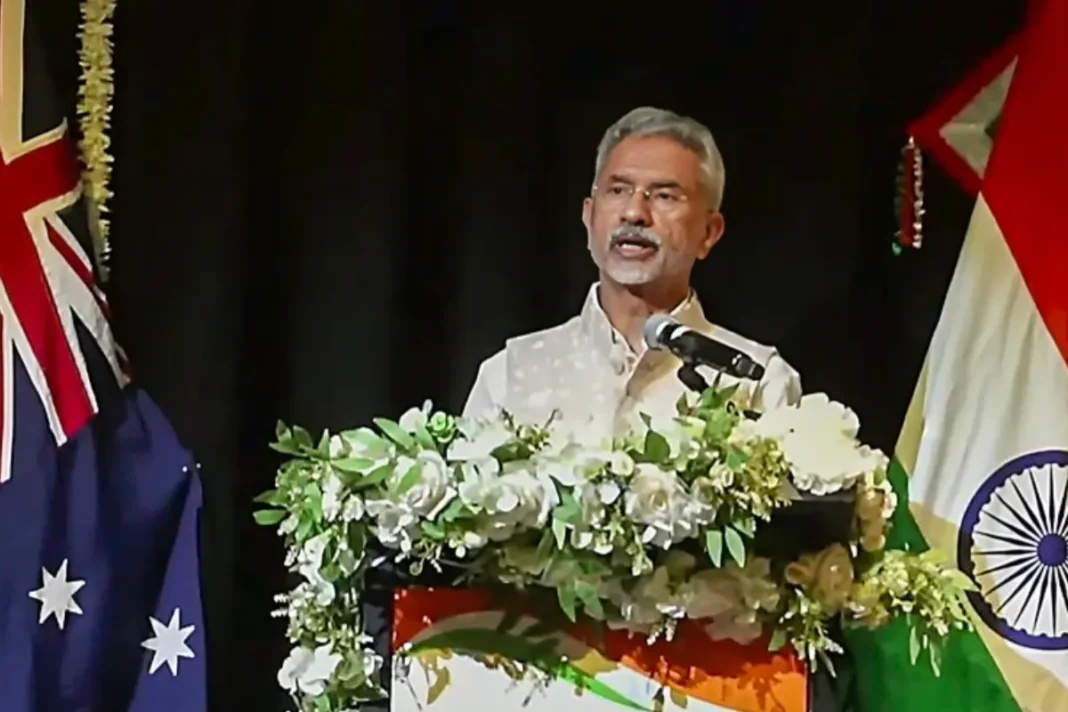Amidst the growing strength of India in the world, the demand has once again arisen to make India a permanent member of the United Nations Security Council (UNSC). Many countries around the world have advocated for permanent membership. On Saturday, Foreign Minister S. Jaishankar said that he is confident that India will get permanent membership in the UNSC, but it won’t be easy as some countries may attempt to oppose us. It is worth noting that Jaishankar made these remarks while participating in a two-day Indian Ocean conference in Perth, Australia.
Jaishankar’s Statement: India to Attain Full Permanent Membership in UNSC
During discussions with the Indian community, in response to a question about India’s potential permanent membership in the UNSC, the Foreign Minister said that he is 100% confident that we will reach there, but honestly speaking, it won’t be easy for us. He mentioned that the world is filled with competition, and some countries will try to oppose us, but he is confident that we will definitely reach there.
When was UNSC Established?
The United Nations Security Council, established in 1945 through the United Nations Charter, stands as a cornerstone of global governance. As a pivotal organ within the United Nations, it plays a crucial role in upholding international peace and security. Beyond its foundational duties, the Security Council holds the authority to recommend the appointment of the Secretary-General, a key figure in the UN leadership, with the confirmation process vested in the General Assembly.
Moreover, the collaborative nature of the UNSC and the General Assembly extends to the selection of judges for the International Court of Justice, fostering a shared commitment to the principles of justice and international law. This intricate web of institutional relationships underscores the interconnectedness of the UN’s core components, working collectively to address global challenges and promote a harmonious international order.
Which countries are permanent members of the UNSC?
The five permanent members of the Security Council are the United States, Britain, France, Russia, and China. These five countries have veto power. Whenever a decision is made in the UNSC, the approval of all five permanent members is mandatory. Suppose any one of the five countries is against a decision, in that case, it can use its veto power to block that decision.
It is noteworthy that in addition to these permanent member countries, ten other countries are temporarily included as non-permanent members for a two-year term in the Security Council. Among these ten members, five are from Asian or African countries, two from South American countries, one from Eastern Europe, and two from Western Europe or other regions.
Why hasn’t India obtained permanent membership in the UNSC?
China consistently opposes India’s permanent membership in the UNSC. It is worth mentioning that China, being one of the five permanent members, holds veto power in the UNSC. It has often thwarted India’s efforts to become a permanent member.
Some people believe that not signing agreements like the Non-Proliferation Treaty (NPT) and CTBT could be one of the reasons why India is not getting permanent membership. Besides, India is competing with the G4 group, including Japan, Brazil, and Germany, for a permanent membership in the UNSC.
Will India become a permanent member of the UNSC?
India has persistently advocated for an expansion in the number of permanent members of the UNSC for a considerable duration. Its compelling argument rests on the premise that the current composition should evolve to accommodate the growing influence of nations since its formation. Notably, several countries have rallied in support of India’s stance. It is worth highlighting that India’s burgeoning global influence is now widely recognized, and post the COVID-19 pandemic, the world’s trust in India has increased significantly.


